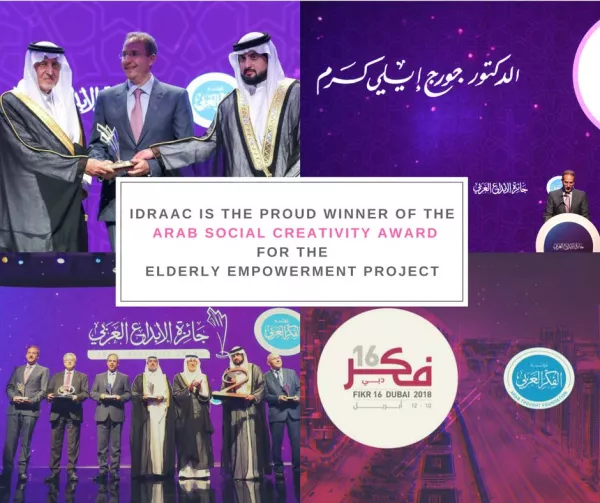Mental Health Treatment
Mental Health Treatment
IDRAAC is working on different research projects related to assessing the pattern of treatment of mental disorders in Lebanon which includes the access to treatment, stigma related to treatment, type of treatment, human resources, pharmacologic medications, utilization of services, etc.
IDRAAC is also working on a research project related to assessing the pattern of psychotropic medications use in Lebanon. As psychotropic medications prescriptions and use has increased worldwide, little information is available about their use in the Lebanese population. IDRAAC is exploring the patterns of psychotropic use in Lebanon and its correlation with the presence or absence of 12-month DSM-IV mental disorders.
In addition, IDRAAC has been analyzing the effect of different community interventions as they play a role in mental health prevention and treatment.
Examples of community interventions that are being evaluated for their effectiveness are listed below.
• GENMOD Study: A classroom-based intervention for PTSD, Depression and Anxiety targeting Lebanese and Syrian students attending public schools in Lebanon. This study also aims at by investigating the molecular genetics of individual differences in Syrian refugee children’s response to acute war-related traumatic experiences and variability in response to psychological intervention of both Lebanese and Syrian children as a function of genetic factors.
• Addressing the Needs of the Total Assyrian Community in Lebanon: This project aimed at addressing the needs of all age groups from the Assyrian community: the children, the adults and the elderly through providing mental health and psychosocial support and capacity building to the Assyrian community workers. The project consisted of different activities such as a classroom-based intervention and a parenting program which served as a means to improve the health and mental health status of this group which has suffered from the effects of war and displacement. IDRAAC is currently investigating the results of the different interventions on the mental health of the beneficiaries.
• Biological Pathways of Risk and Resilience in Syrian Refugee Children BIOPATH: This project aims at investigating the biological underpinnings of individual differences in refugee children’s response to acute war-related trauma exposure. Through this initiative, we studied genetic moderations of interventions related to mental health wellbeing of Syrian children and adolescents by measuring pre-post changes in psychological variables and identifying specific gene variants in children who are more/less responsive to interventions.
• Wellbeing of Syrian Refugee Families- mainly Women and Youth-in Lebanon: An Integrated Intervention which targeted both Syrian refugees and the Lebanese hosting communities and aimed to improve the mental and social wellbeing of Syrian refugee families in Lebanon and enable the Lebanese government to provide support. As a result, the project built the capacity of refugee mothers in developing alternative strategies for parenting children and women benefited from gender-based violence sessions delivered by trained social workers. Students and teachers were also trained on resilience building techniques through a classroom-based intervention to build resilience and positive coping among students which was implemented in schools. IDRAAC is currently investigating the results of this multi-faceted project on the beneficiaries.
• Turning Teachers Into Educators of Tolerance and Conflict Resolution: This project aims to improve the capacity of public school teachers to become mediators of behavioral change and contribute to build tolerance, decrease violence and conflicts among Syrian and Lebanese students through a classroom-based intervention. IDRAAC is studying the improvement mental disorders outcomes among the beneficiaries of this intervention.
• The School Program for Building Resilience and Coping: This program aimed at teaching school-age children and adolescents emotional, behavioral and cognitive tools to face stressful situations in daily life. IDRAAC is currently assessing the effectiveness of this intervention among the students, their teachers and parents on various aspects.



